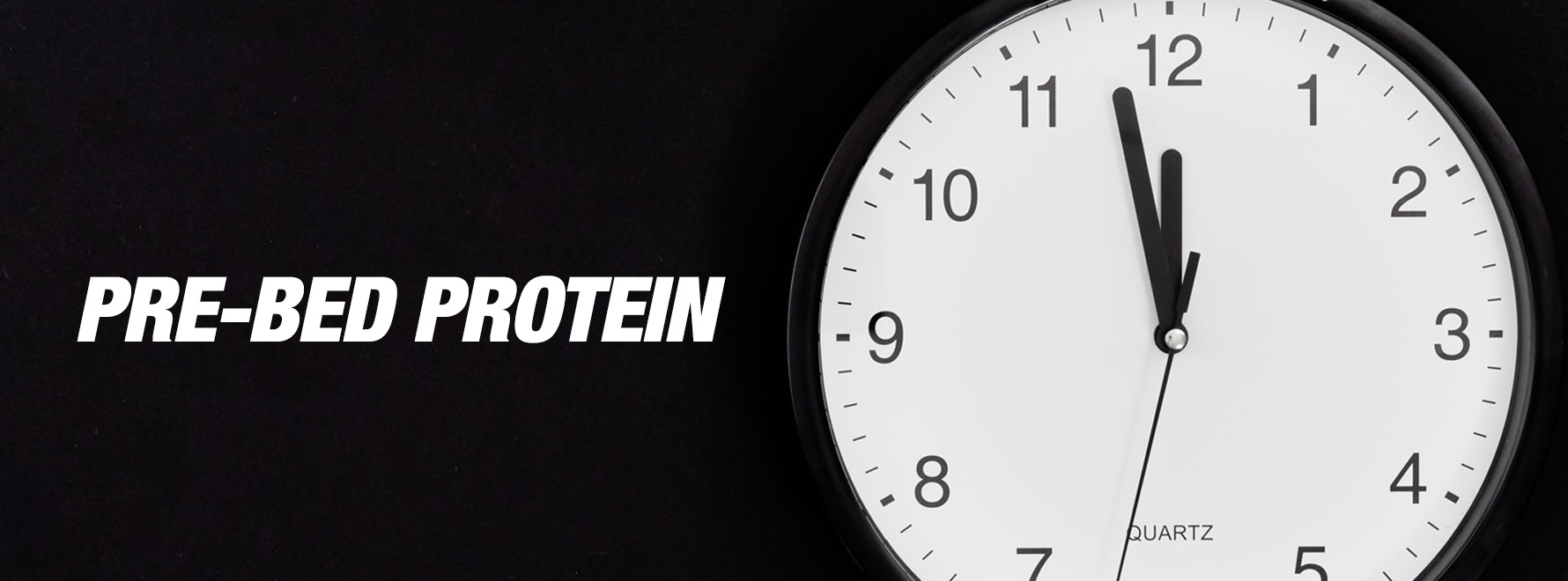Spot-On: Exercise in the evening: can late night protein ingestion stimulate recovery during sleep?

- Exercise in the evening: can late night protein ingestion stimulate recovery during sleep?
- Based on a recent article by Abbott et al. , published March 2019
- TITLE: Pre-sleep Casein Protein Ingestion: Acceleration of Functional Recovery in Professional Soccer Players
- DOI link: https://pubmed.ncbi.nlm.nih.gov/30204517/
What did this study look at?
The transfer of training into performance gains largely depends on the quality of the training stimuli administered, of course. But adequate balance between training load and recovery episodes is equally important. Stimulation of muscle protein synthesis is the primary mechanism driving post exercise muscle repair and adaptation. It is well established that ingestion of high-quality whey protein (~20-30g) can rapidly stimulate muscle protein synthesis during the initial hours after exercise. Furthermore, pre-sleep intake of slowly-digestible casein proteins (30-40g) can serve to maintain adequate muscle protein synthesis rates overnight. Both elite and recreational athletes regularly participate in evening exercise sessions (training or competition). This makes muscle repair mainly to occur during sleep. Thus, the question arises as to whether pre-sleep protein intake is useful to enhance recovery after an evening-exercise session. Given the ‘slow-release’ kinetics of micellar casein, ingestion of this specific milk protein to support overnight muscle protein synthesis appears to be an attractive nutritional intervention.
In the latter context, Abott and co-workers from Brighton University in the UK performed a field study to investigate the effect of casein supplementation on muscle functional recovery in ten English Premier League professional soccer players. They participated in 2 separate night matches (kick off 7pm) and received either 40g of a micellar casein supplement, or a carbohydrate-rich control drink, within 30min before going to sleep after the match. Muscle soreness and power (countermovement jump; drop-jump) were evaluated 12h, 36h and 60h after each match. Except for the experimental recovery drinks, post-match food intakes as well as match loads were similar between the two conditions.
What did the study show?
The soccer matches induced muscle soreness and attenuated countermovement and drop-jump performances (minus 5-10%) up to 36 hours after the game. Compared with carbohydrate intake alone (control drink), pre-sleep casein intake alleviated perception of muscle soreness, most prominently within the initial 12h recovery period. In addition, the casein supplementation suppressed the exercise-induced depression of jumping performance up to 36 hours after the match.
What is the importance of this finding for sports performance?
Sports disciplines involving exhaustive high-intensity running exercise often cause structural muscle damage which in turn triggers inflammatory processes and pain, often termed ‘delayed onset of muscle soreness (DOMS). This process is also associated with impaired muscle power output during the initial days following the event. The current study shows that casein intake (40g) before bedrest on the evening following a DOMS-inducing exercise session may alleviate muscle soreness and drop of muscle power output during the initial two recovery days.


